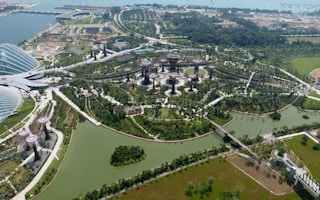With more than half of the global population now living in cities and human settlements, greater attention needs to be placed on the role of urbanisation as a source of global development and social inclusion, according to the United Nations on World Cities Day.
“To transform our world, we must transform its cities” Secretary-General Ban Ki-moon said in a statement commemorating the Day, which is observed on 31 October around the globe.
“They are central to climate action, global prosperity, peace and human rights,” he added. “Crime, pollution and poverty are taking their toll on hundreds of millions of city-dwellers. At the same time, urban areas are hubs of energy, innovation and economic dynamism. By investing in cities, we can advance progress across societies.”
In a resolution adopted in February 2014, the UN General Assembly designated the Day in recognition of the significance of urban basic services as a foundation for the overall social and economic development.
The rationale underpinning the Day is that planned urbanisation maximises the capacity of cities to generate employment and wealth, and to foster diversity and social cohesion between different classes, cultures, ethnicities and religions. The theme of this year’s observance is ‘Inclusive Cities, Shared Development.’
The Day also ties into the Sustainable Development Goals (SDGs), with SDG 11 aiming to make cities and human settlements inclusive, safe, resilient and sustainable. According to UN-Habitat, inequalities in cities have grown since 1980, with the world’s largest cities also often the most unequal.
In his remarks, the Secretary-General noted that momentum is building on this issue in the wake of the recently concluded UN Conference on Housing and Sustainable Urban Development, known as Habitat III, at which attendees adopted the New Urban Agenda, a vision for cities that are just, safe, accessible, affordable, resilient and sustainable.
“
By investing in cities, we can advance progress across societies.
Ban Ki-moon, secretary-general, United Nations
“This marked a milestone in setting global standards for sustainable urban development, sparking new thinking on how we plan, manage and live in cities,” the UN chief said in his message.
He went on to flag that along with other new global framework agendas – such as the 2030 Agenda for Sustainable Development, the Agenda for Humanity, the Sendai Framework and the Addis Ababa Action Agenda – the New Urban Agenda will put sustainable urbanisation at the centre of efforts to eliminate poverty and achieve development and prosperity for all, and it can also complement the Paris Agreement on climate change.
“Local action is essential to realising the potential of these global agreements,” Mr. Ban said. “On World Cities Day, let us renew our resolve to confront urban problems and forge lasting solutions. Together, we can show how success in cities inspires change across the world.”
Shifting the urban paradigm
Mr. Ban was joined in marking the Day by Joan Clos, the Executive Director of UN-Habitat, the UN agency charged with promoting socially and environmentally sustainable human settlements development and the achievement of adequate shelter for all.
In his message for the occasion, Mr. Clos pointed to the Day as “an essential celebration on the calendar to greatly promote the international community’s interest in global urbanisation, push forward cooperation among countries in meeting opportunities and addressing challenges of urbanization.”
He said this year’s Day was particularly signi¬ficant as it comes on the heels of Habitat III, which he referred to as, a “resounding success” in which 30,000 people participated in almost 1,000 events over the course of four days.
“Such high turnout is a testimony of the strong world interest in urban development, and in taking part in the global conversation about our cities,” Mr. Clos said, flagging that planning and managing cities are core sustainable global development challenges that hold the key to achieving equal and inclusive societies.
“This year the World Cities Day is happening within the framework of a New Urban Agenda, the first of this century to make possible the change of the current cities’ model for better urban life,” continued the Executive Director.
“The New Urban Agenda shares a vision of cities for all, ensuring that all citizens are able to inhabit and produce just, safe, healthy, accessible, affordable an sustainable cities for foster prosperity and quality of life,” he added.
Dr. Clos elaborated that in line with Sustainable Development Goals and the Paris Agreement, the New Urban Agenda envisages cities and human settlements where everyone can feel a sense of belonging and have equal opportunities to participate in.

















